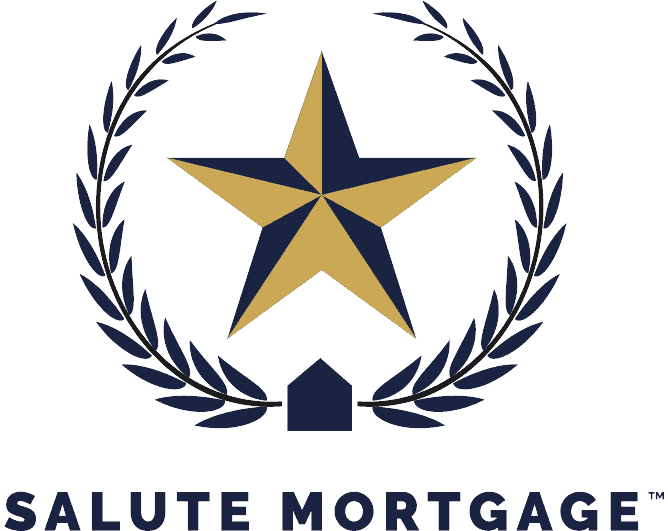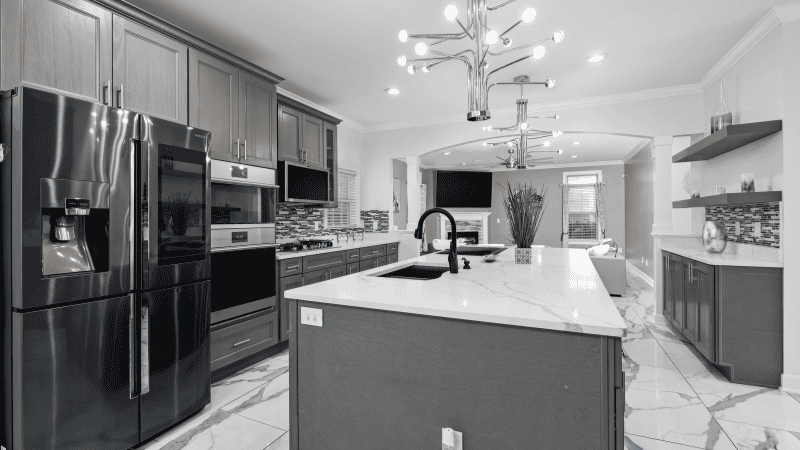Last updated: October 2025
Quick Answer
Refinancing from an FHA to a conventional loan is smart when you’ve built at least 20% equity and improved your credit score. This move eliminates FHA mortgage insurance (MIP) and can lower your monthly payment.
Salute Mortgage simplifies the timing, equity check, and approval process so you can graduate to a conventional loan with confidence.
See if you’re ready to drop MIP and refinance today.
Why FHA is a starting point and not a forever loan
FHA loans are a great entry into homeownership, especially if:
- You had a low credit score
- You needed a smaller down payment
- You were a first-time buyer with limited savings
But FHA loans come with a catch: mortgage insurance premiums (MIP) that don’t automatically disappear, even when you’ve built equity.
Once your financial situation improves, refinancing into a conventional loan can reduce your monthly payment and save you thousands over time.
Let’s Build Your Path to Homeownership
At Salute Mortgage, we combine veteran-led guidance with clear, tactical support—whether you're buying your first home, refinancing, or planning for long-term equity.
Key signs it’s time to refinance to a conventional
You don’t need to guess when to switch. Salute helps identify the perfect moment based on three core factors:
1. You have at least 20% equity
Equity = Your home’s current value minus your remaining loan balance.
Conventional loans don’t require mortgage insurance if your loan-to-value (LTV) is 80% or lower. If your home has appreciated, or you’ve paid down your FHA loan, this milestone could already be within reach.
Salute orders a new appraisal and confirms your eligibility fast.
2. Your credit has improved
Conventional loans reward better credit with lower rates. If your credit score has improved since your FHA approval, you may now qualify for a better term and rate.
Minimum target: 620–680+, though 700+ opens the door to the best pricing.
3. Your income and DTI are stable
If your debt-to-income ratio is in check and your job/income profile meets conventional underwriting, you’re a strong candidate. Salute reviews this before you apply so there are no surprises later.
What refinancing from FHA to conventional can do for you
Switching to a conventional loan offers several real, measurable benefits:
- Eliminates monthly FHA MIP: FHA MIP typically costs 0.55% of your loan annually, even if you’ve built equity. Conventional loans don’t require PMI once you hit 80% LTV.
- Reduces monthly payment: Lower rate + no MIP = more breathing room in your budget.
- Lets you build equity faster: Without mortgage insurance eating into your monthly payment, more of your dollars go toward principal.
- Improves future refinance or HELOC options: A conventional loan positions you for better terms on future cash-out refinances or second mortgages.
How Salute makes the FHA-to-conventional refinance easier
Many lenders treat refinance like a brand-new loan—with all the paperwork and guesswork. Salute does it differently:
- Equity check-up: We’ll review your current balance, run a property value analysis, and let you know whether you’re ready or how close you are.
- Credit score strategy: We help you understand how your credit history affects your options, and whether a short-term credit plan could unlock better pricing.
- Streamlined document review: You’ll only submit what’s required for your refinance goal. No redundancy.
- Appraisal management: If needed, we order your appraisal quickly and interpret the results for you. No mystery around values or outcomes.
- Timeline and transparency
Most FHA-to-conventional refinances close in 30 days or less. Salute keeps you informed at every step.
What you’ll need to refinance from FHA to conventional
Gathering your paperwork in advance helps your refinance move faster. Here’s what you typically need:
- Mortgage statement
- Current FHA loan details
- Recent pay stubs and W-2s (or tax returns if self-employed)
- Homeowners insurance info
- Credit and asset documentation (Salute will walk you through this)
If you’re refinancing to remove MIP and reduce your payment (rate-and-term refinance), your lender will review your loan purpose, LTV, credit, and income only. No cash-out documentation required.
Should you refinance if your FHA rate is already low
It depends. Even if your FHA interest rate is low, your total monthly cost may be inflated by MIP. Here’s a simplified comparison:
| Factor | FHA Loan | Conventional Loan |
|---|---|---|
| Rate | 5.75% | 6.00% |
| MIP | 0.55% (ongoing) | 0% (if 80% LTV) |
| Monthly Payment | $1,750 (with MIP) | $1,700 (no PMI) |
In this example, the higher conventional rate still results in a lower monthly cost because MIP is removed.
Salute will run the numbers for you, based on your actual loan balance and property value.
What about closing costs for FHA-to-conventional
Yes, conventional refinances have standard closing costs, typically 2%–3% of the loan amount. But if your monthly savings are significant, you may break even in just a few years.
Salute Mortgage will:
- Provide a detailed cost breakdown
- Explore lender credit options to offset fees
- Help you compare short-term costs vs long-term savings
If equity and payment savings are strong enough, refinancing may be worth it even with closing costs.
Ready to graduate from FHA?
You don’t have to guess if it’s the right time to refinance. Salute Mortgage provides a simple, side-by-side breakdown—showing your equity position, rate opportunities, and monthly savings if you refinance to a conventional loan. No pressure, just clarity.
Check your FHA-to-conventional refinance options.
FAQ: Refinance FHA to conventional
A: You typically need at least 20% equity in your home to refinance into a conventional loan without private mortgage insurance.
A: Yes. Conventional refinances have closing costs, but Salute can help you estimate those costs and determine your breakeven point based on your monthly savings.
A: Possibly. Salute will review your recent payment history and credit profile to determine eligibility. Some lenders require 12 months of on-time payments.
A: Most lenders look for a minimum credit score of 620. For better rates and terms, a score of 680 or higher is preferred.


